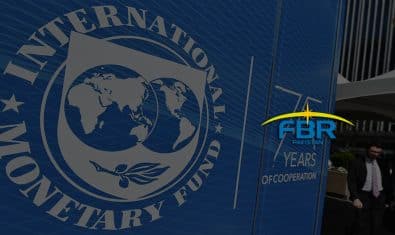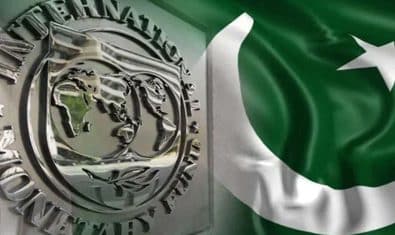Nearly 50% of inflows from various countries still come through unauthorized and unbanked channels to Pakistan, which results in a massive loss to the economy.
According to the SBP, an estimated 50 to 60 percent of inflows are transmitted to Pakistan via authorized channels. The other 40 to 50 percent are transmitted via family and friends (in cash and payment-in-kind), third party barter arrangements, and unauthorized remittance service providers (a.k.a., Hundi).
Migrants and their families have several options to choose from in terms of how and when remittances are delivered (or made available for pick-up) and where the funds can be accessed or used.
Remittance inflows to Pakistan through authorized channels include commercial/microfinance banks and exchange companies. Pakistan Post is the only institution in Pakistan that is authorized to provide home remittance services besides these institutions.
The average cost of sending remittances to Pakistan is relatively low compared to other developing countries around the world. However, the cost of sending remittances from Pakistan to other countries is well above the global average.
The cost of sending remittance to Pakistan has not always been low (lower than the global and lower-middle-income countries’ average). The government’s Pakistan Remittance Initiative (PRI) program contributed significantly to the drop in the cost of inward remittances, as well as the low remittance cost structure in several countries that host Pakistani migrants.
Banks participating in the PRI were urged to use the domestic payment infrastructure to enable speedy delivery of remittances into the bank accounts of recipients, no matter where the recipients banked.
Currently, settlement uses a standard format free of charge, for individual interbank transfers of home remittances with no limit on the minimum value of a transaction. The decision was made to foster the use of straight-through processing (STP) and real-time delivery of home remittances – without the risks introduced in the IBFT system. It was also introduced to discourage the issuance of demand drafts/payment orders by banks that are not participating in the PRI.
Remittance Share Stands at 6.46% of GDP
Pakistan is among the top ten recipients of international remittance flows. Only five countries in the world received more cross-border remittances than Pakistan. Remittance inflows to Pakistan account for 6.46 percent of its GDP.
But Pakistan has not always been a major recipient of remittances. The rapid pace of growth of remittances to Pakistan can be attributed to a variety of factors. These include an increase in labor emigration, enhanced data collection, a reduction in the cost of sending remittances to Pakistan and a shift in remittance flows to authorized channels. Some of the growth in remittances can be attributed to the government’s proactive remittance policy. The core component of this policy is a unique PRI.
The PRI offers a fee rebate to bank and microfinance bank (MFB) remittance service providers (RSPs) that charge senders no fee to send remittances to Pakistan. It also provides support for banks and MFB RSPs in establishing tie-ins with RSPs in remittance source countries. The PRI was instrumental in driving down the cost of sending remittances to Pakistan.
SBP also introduced the use of IBAN account numbers to facilitate STP of home remittances to recipients’ accounts.
Govt Targets $24 billion Remittances for FY2020
The present government is working to enhance the inflows of the remittances through various measures. In this regard, it has set a target of $24 billion for the current financial year.
The country received an all-time high remittance of $21.8 billion in the last financial year. It has received remittances to the tune of $11.4 billion with consistent growth during July-December FY 2020.
It is pertinent to mention here that the two religious festivals—Eid-ul-Azha and Eid-ul-Fitr—will fall in the second half of the current financial year, which attracts seasonal growth in remittances in Pakistan.
The recent efforts by PRI help attract higher remittances from the Pakistani diaspora by enhancing outreach, reimbursement of the T.T. Charges Scheme (Free-send Model) and improvements in the payment system infrastructure, etc.
Similarly, visa fee reduction from the Kingdom of Saudi Arabia is likely to boost inflows while the export of manpower had also been increased from 382,000 to 625,000 during January-December 2019, with an increase of 243,000 as compared to the corresponding period last year.
A statement issued by the Ministry of Finance claims that the government has improved diplomatic relations with the Gulf States which helped restore the confidence of foreign employers in the Pakistani workforce. Similarly, reimbursement of the T.T. Charges Scheme had also been revised in December 2019.
Accordingly, the amount of home remittance transaction equal to and above USD 100/- but less than USD 200/- (or equivalent in other currencies) would be reimbursed at SAR 10 while the amount of home remittance transaction equal to and above USD 200/- (or equivalent in other currencies) would continue to be reimbursed at SAR 20/-.
In order to further encourage promotion of home remittances through formal channels, the government of Pakistan had re-launched the performance-based scheme effective from January 01, 2020, in which, Rs. 1 per each incremental USD mobilized over 15% growth in remittances in the calendar year 2020 compared with the levels achieved in the calendar year 2019, the statement added.






















If there is any one to be blame for this is thats SBP. Incompetent group of people making outdated rules and regulations.
Starts from opening a bank account to receiving the funds from overseas, Each step is full of hurdles
“Ya tu ho ga”
I say FATF is right that Banking system of Pakistan is corrupt to the core. however there are many reasons for this. the sole reason was by political parties to keep it that way to hide their ill gotten wealth. I see it will be very hard for IK to change anything he has so many liabilities in his own cabnet too
They want to increase banking channels participation in getting remittances but the way and delays they introduce makes anyone decide go out of route.
I have a transaction still not received in the bank that was initiated at least 45 days ago.